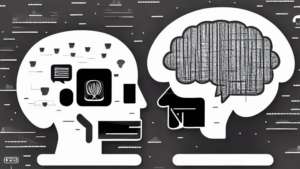In today’s world of remote work, teams face a unique set of challenges. One of the most significant hurdles is maintaining authenticity and building genuine connections with colleagues and customers in a virtual environment. When trust is broken and accountability is lacking, it can be difficult to foster a sense of camaraderie and create a cohesive, high-performing team. However, we can overcome these obstacles by focusing on authenticity and unlocking our true potential.
Why Authenticity Matters
Authenticity is the foundation of any successful relationship, whether it’s with a colleague or a customer. When we’re authentic, we’re being true to ourselves and others. We’re not hiding behind a facade or pretending to be something we’re not. Authenticity becomes even more crucial in remote work, where face-to-face interactions are limited. It allows us to build trust, establish rapport, and create a connection that transcends the digital divide.
When trust is broken within a team, it can be challenging to rebuild those relationships. However, by emphasising authenticity and encouraging open, honest communication, we can start to mend those bonds. It’s about creating a safe space where team members feel comfortable being themselves, sharing their thoughts and feelings, and owning up to their mistakes.
The Impact of Imposter Syndrome on Authenticity
Imposter Syndrome can significantly impact authenticity within remote technical support teams. This psychological pattern is characterised by individuals doubting their accomplishments and fearing that others will expose them as frauds. Consequently, these individuals might suppress their authentic selves and put on a facade. They may pretend to be more confident, knowledgeable, or skilled than they are, hampering the development of genuine connections and open communication within the team.
Such fear and self-doubt can also undermine the accountability culture that is central to authenticity. Those affected by imposter syndrome might find it challenging to admit their shortcomings or mistakes, as they fear that doing so would validate their self-doubt and expose them as frauds. This reluctance can erode trust within the team, as it inhibits the transparency and vulnerability necessary for a healthy and authentic work environment.
Addressing and overcoming imposter syndrome is crucial for fostering authenticity. It encourages individuals to embrace their true selves, including their strengths and weaknesses, and to contribute genuinely to their team’s success. With authenticity and openness, teams can better navigate the complexities of remote work, build stronger connections, and achieve their full potential.
Practical Strategies for Fostering Authenticity
How can we cultivate authenticity within our remote technical support teams? Here are some practical strategies to consider:
- Lead by Example
As leaders, it’s up to us to set the tone for authenticity within our teams. We need to be willing to be vulnerable, share our struggles and successes, and admit when we don’t have all the answers. By modelling authentic behaviour, we create a culture where it’s okay to be human and make mistakes. - Encourage Open Communication
Create opportunities for team members to share their thoughts, feelings, and concerns openly and honestly. This could be through regular one-on-one check-ins, team meetings, or casual virtual coffee chats. Encourage active listening and create a non-judgmental environment where everyone feels heard and valued. - Celebrate Individuality
Embrace each team member’s unique personality and strengths. Encourage them to bring their whole selves to work and celebrate their individuality. When we appreciate and leverage the diversity within our teams, we create a more authentic and inclusive workplace. - Foster Accountability
Authenticity goes hand in hand with accountability. Encourage team members to take ownership of their work, admit when they’ve made mistakes, and learn from those experiences. Create a culture where failure is okay as long as we learn and grow. - Prioritise Well-being
Authenticity requires a certain level of emotional intelligence and self-awareness. Encourage team members to prioritise their mental health and well-being. Offer resources and support to help them manage stress, build resilience, and maintain a healthy work-life balance. - Recognise and Reward Authenticity
When you see team members demonstrating authenticity through their communication, work, or interactions with others, recognise and reward those behaviours. Celebrate the small and big wins, and let your team know their authenticity is valued and appreciated.
The Power of Authenticity
We can create a culture of trust, accountability, and genuine connection by prioritising authenticity within our remote technical support teams. When team members feel safe being themselves and bringing their whole selves to work, they’re more engaged, productive, and likely to go above and beyond for their colleagues and customers.
Authenticity is the key to unlocking the true potential of our remote support teams. It’s about keeping it real, being true to ourselves and others, and creating a workplace where everyone feels valued, supported, and empowered to be their best selves. So, let’s embrace authenticity, lead with vulnerability, and watch our teams thrive in the face of any challenge.
Take the lead in embracing authenticity within our remote teams. It’s time for us to be brave, real, and ourselves. Create an environment that encourages openness, celebrates individuality, fosters accountability, and prioritises well-being. Recognise and reward authenticity in our teams.







